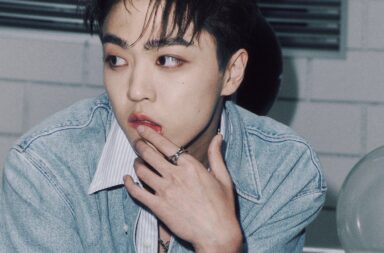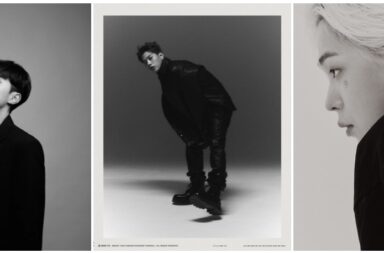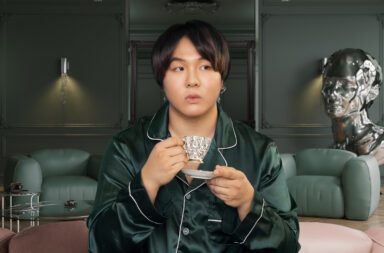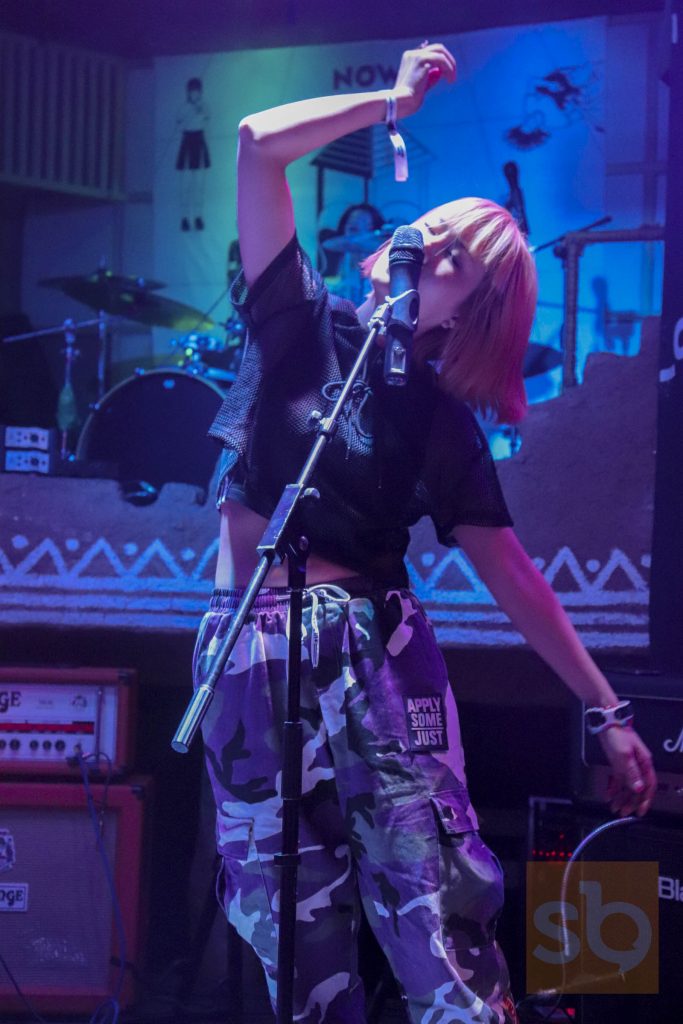
There is no question that 2020 brought big changes to the Korean Indie scene: venues closed, and artists have found themselves scrambling to continue performing through new platforms. However, this rupture of Hongdae’s structure has also brought about exciting new creative inspirations and endeavors for many groups. One such group is Ego Function Error, who have been making waves in the Hongdae scene since their debut in 2015 with a self-titled EP. With a mix of psychedelic and punk influences, Ego Function Error (EFE) have used their boisterous sound and high energy performances to critique and express the sentiments of the times. In a year like 2020, it’s only natural that the group would have a lot to say.
This past month, Seoulbeats was fortunate enough to conduct a written interview with Ego Function Error’s vocalist, Kim Min-jung. Speaking from her own experience in the indie scene, we were able to discuss her work with WEWEWE, the impact of Covid-19, the recent compilation album We, Do it Together, and her methods for moving beyond burn-out and towards creating music that can both comfort and inspire listeners. We hope that you enjoy the interview and don’t forget to check out We, Do it Together, which features some of our other past indie gems!
First off, how are you? How is 2021 so far?
We basically haven’t been able to perform. Out of the three most important times for the Hongdae indie scene (Gyeonrokjeol, Zandari Festa and Halloween) we were able to perform online for Gyeongreokjeol on February 11. As a result of this shutdown, Ego Function Error has been releasing live performances each Monday through our YouTube channel.
Ego Function Error has released two albums, along with two single albums. For our readers who may not have heard your music, could you introduce yourself and your sound?
Ego Function Error is a group that works to reinterpret the music from the 1960’s all the way to the 2000’s in our own style. With a cheerful and explosive sound and performance, we use music to break the boundaries between the performers and the audience.
With that in mind, which track do you think best exemplifies Ego Function Error?
I’d say “King of Fools” which has a heavy psychedelic style. The lyrics “I’ve been tormented by endearing mistakes, making myself depressed. It’s time to let go of this weight I’ve been carrying my whole life” were written to communicate that it’s okay to make mistakes and have the courage to relentlessly push forward.
Listening to your albums, I’ve noticed a sharp contrast between the playful tracks like “Outsider” and heavier songs like “Our Nation.” How do you go about choosing the tone for your songs? What topics make you want to scream, and what topics do you choose to address with sarcasm?
People who don’t respect you won’t be able to respect your anger. So I thought, why not approach it a different way? When writing “Our Nation” I thought “what if the people in power don’t get to experience friendly, first-class service? What if they have to deal with discrimination based on their age and gender?”
“Outsider” is a song that is both pathetic and funny. With a bit of wit, the final lyrics say that although it’s painful and hard, we hope that there is a fortunate life ahead. It’s like a screaming fortune cookie that you can hum to yourself [when you need it].
Your most recent single, “Lazy Cat” discusses feelings of apathy and a loss of motivation. How do you stay motivated in challenging times? What motivates you to write your songs?
Burnout manifests in two different ways. In one scenario, I cook a lot of curry, don’t leave the house, lay down with my cat and thoughtlessly watch dramas or variety programs. For the other, I keep giving up projects halfway through. When that happens, I reach out on SNS to share my feelings and ask for help. When I hear the positive words from others, it encourages me to produce good things for EFE. When our guitarist Kim Guk-guk writes good music, I’m encouraged to add melodies and lyrics that can provide comfort to someone.
Are you working on any new music now? Can fans expect something in the future?
We’ve always been a group that focused on performing live, but the Covid situation has changed things a great deal. We’re looking for the best ways to show our music through video [and other platforms]. We’re aiming for our next single to be released in summer 2021.
I saw your stage at the 2019 Zandari Festa and was impressed with the connection you formed with the audience. What are the most important parts of performing for you?
It’s so nice to hear that you enjoyed our stage at Zandari! And yes, we strive to deliver our cheerful and explosive energy to the audience in a way that makes them jump and shout, “Yes! This is live rock!” I think our strength is making the audience feel that. When performing, it’s all about delivering that kind of energy to the audience.
2020 was a challenging year for many artists who perform live regularly. Several venues in Hongdae and elsewhere have closed their doors permanently. How do you feel about the changes the scene has undergone?
2020 really caused us to panic over how to proceed. It’s not only Covid — like you said — but also gentrification that is causing many venues in Hongdae to close. I don’t think that Covid is something that will go away easily. Up to now, we’ve been making online performances of our songs. [As for solutions], I think that the government should provide assistance for rent and equipment so that the Hongdae performers who have been unable to work are able to transition to online platforms. To that end, the indie scene performers and fans have joined forces for the #SaveOurStage campaign.
Ego Function Error recently participated in the compilation album, “We, Do it Together” in conjunction with Electric Muse. The album features female artists in the Korean Indie scene. How did the album come about?
I thought it was really strange that there had never been a compilation album commemorating female artists produced in the 25 years that the Hongdae indie scene has been active. This is something that I’ve brought up with fellow performers repeatedly over the past two or three years. In 2020, the spread of Covid worldwide may be the biggest headline, but I thought that it was time for an album that presented female voices expressing their anger over the continued threat of sexual violence in Korean society that was exemplified with incidents like that of the Nth room.
In 2019 I founded WEWEWE, a community that allows creators concerned with gender issues to speak out and collaborate with one another in a safe way. Also, Kim Min-gyu, the CEO of Electric Muse, has been looking out for me for a long time and helped to get the album produced.
It’s great to see such a wonderful collection of female artists on the same album, including some we’ve covered before, Drinking Boys and Girls Choir, Billy Carter, and Dabda. Ego Function Error contributed the track “판” (“Uneven Playing Field”). Can you tell us a little about the track?
[“Uneven playing field”] is a song that points the finger directly at judges. I was so sick and tired of seeing rulings that unfairly disregarded human rights and did not reflect the spirit of the times. I wanted to show that with each case, the victim is the one who suffers, not the perpetrator, and reverse the situation. Rather than a victim, think of yourself as a survivor. What about taking it one step further and not only become a survivor but a survivor with agency? I wrote the song with the hope that in 2020 we can turn the tables in Korea and enjoy it.“Uneven Playing Field” is far from the only track the group has released that centers around the discrimination women experience. “Outsider” also comes to mind as a rebuke to the expected behavior of women and the pretenses we are forced to have in order to appear “nice.” As a female artist, what expectations do you feel have been forced upon you? How have these experiences shaped your sound?
I might have a tomboyish recklessness, but that by no means makes me a fool. In reality, I understand the situation clearly. There have been many people who have judged me because I appear playful and cheerful, and have disregarded my opinions by painting me as foolish. Ten years ago, I would force myself to go along with it. But now I know that I don’t have to endure people who don’t respect my opinions.
Saying this now, it sounds so cool. But, it isn’t easy. I’m still navigating how to be assertive without being clumsy. With EFE, I can find the strength that I’m lacking. Through our activities, this defiant energy can be channeled into an explosive positivity that fuels my life. Going forward, I want to express this sentiment more maturely in our music.
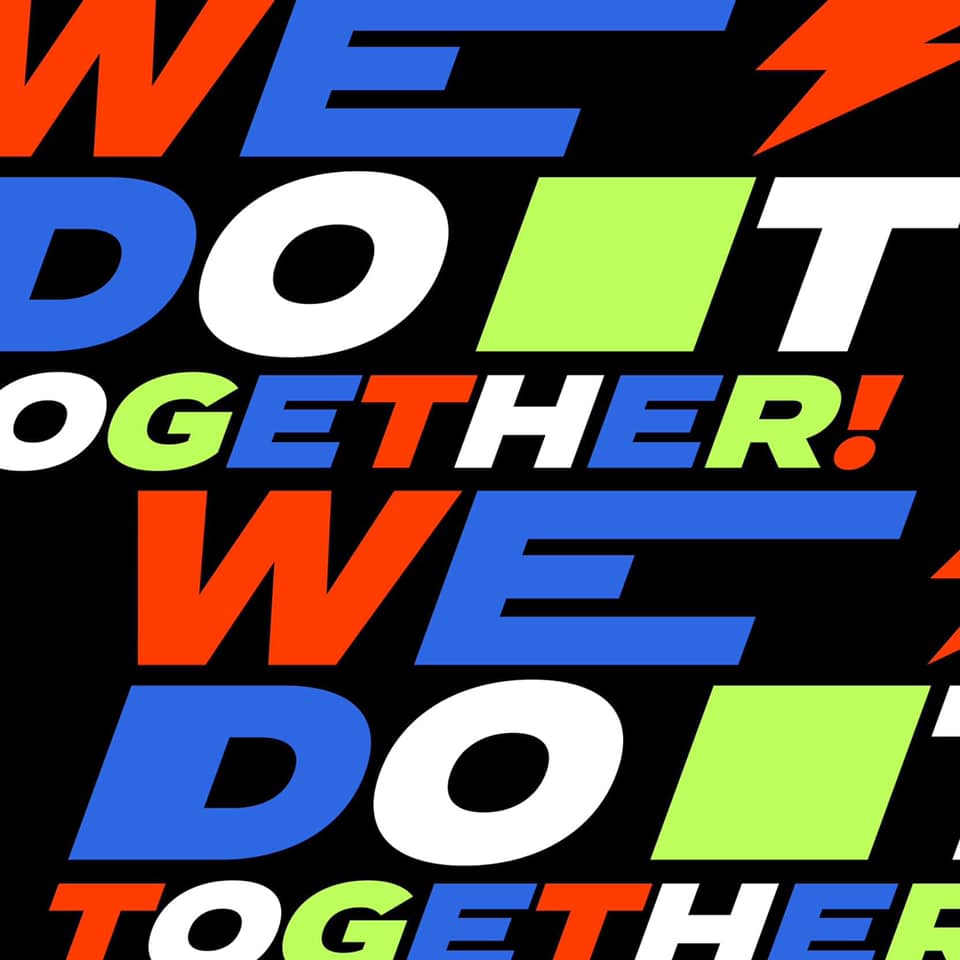
You said in an interview with BandCamp that anger is a way to directly challenge the structures of patriarchy in the music industry. Why do you think that anger in particular is seen as a taboo emotion for females to express? Outside of “We, Do it Together” what role does anger play in your music?
A simple summary of the Band Camp interview would be “Women are angry with South Korea’s patriarchal and capitalist system.” Seeing how little change there has been in South Korean society, I think it’s time for people to come together, raise their voices, and be angry. However, for those who live in fear of sexual violence and discrimination, raising their voices might be impossible. You can only show your anger if you are confident in your own safety. In order for big changes to happen, a fighting spirit is necessary, but you don’t have to try to be the hero. Through EFE, I want to tell others that it’s okay to make mistakes and not be correct 100% of the time. You should be able to speak out when you want to.
Aside from anger, are there other ways to counter the patriarchal structures that continue to dominate the music industry? What changes would you most like to see?
I hope that there will be more opportunities for female musicians. I think that the more success stories we see, the easier we can achieve our dreams. So, female artists: let’s be ambitious. Even if the idea of ambition is a bit foreign to me, I think it’s necessary in order to thrive as an artist.
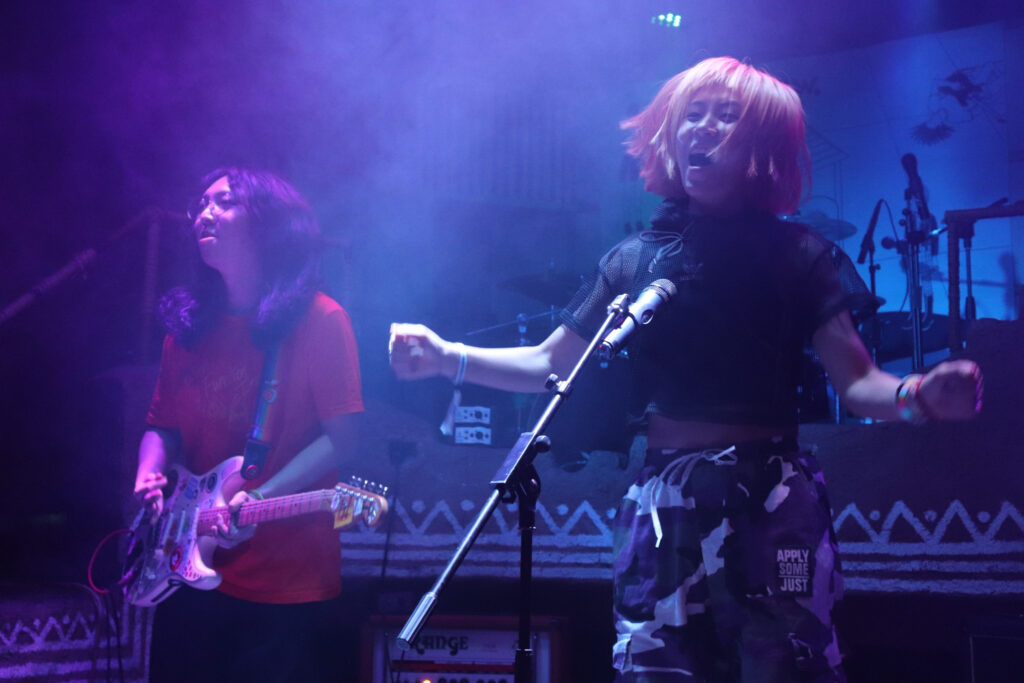
Your music works to address the everyday sexism women experience. How do you as artists approach feminism in your music when the term itself is viewed often viewed negatively in Korea?
Feminism isn’t out to harm people. Hopefully, there can be ways to live, accept differences, and not discriminate. The aim of feminism is to respect one another and co-exist. Each member of society has a different role, but I think that we can all enjoy and participate in the feminist movement together.
On that note, what do you think distinguishes the feminist movement going on in South Korea currently? How are artists like yourselves either embracing it or rejecting it?
I think that there has been a shift towards economic independence. There are several groups working towards the same goal, and I hope that WEWEWE can help to exchange information and share our stories of success and failure in order to have better chances of succeeding. A few years ago, it was difficult to openly discuss feminism because of misandrist expressions of feminism [in groups] like Megalia. But now, the situation is different because whether it’s in business or creative fields, if it isn’t gender sensitive, consumers around the world — even in Korea — will reject it.
Are there any other artists you are listening to these days that you would like to recommend our readers check out?
I’ve been listening to Leenalchi’s “Yeobo Nari (Please Don’t Go)” from the Netflix show School Nurse Files OST often. I would also like to recommend Airy’s “In My Flickers,” the title track from We, Do it Together that was produced by WEWEWE.
Thank you so much for your time. Is there anything else you’d like to share with our readers?
It’s been a long interview! In the current media climate, I want to find spaces where small voices in Indie can be heard, and I’m thankful to Seoulbeats for asking in-depth questions. I also want to sincerely thank the readers who have made their way through this interview! If you want to follow us more closely, please check out our YouTube channel. I hope we can communicate through comments there. Stay healthy and well ~~ Rock and roll!
(YouTube [1] [2]. Band Camp, Korea Times [1] [2] [3], Korea Herald, Korea Expose. Images via: Seoulbeats, Electric Muse, Facebook.)
Seoulbeats works hard to provide a platform for K-pop and K-indie artists and fans. If you like our content, please consider supporting us at ko-fi.com/seoulbeats (one-time donations) or patreon.com/seoulbeats (monthly donations)!
